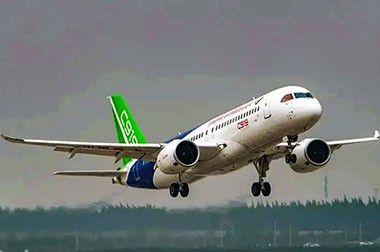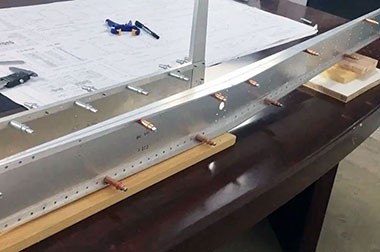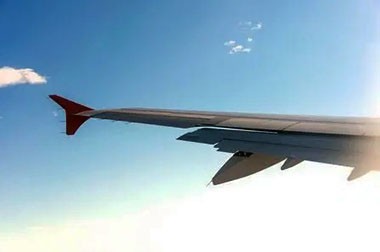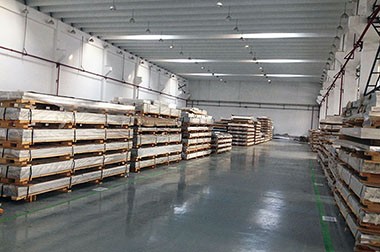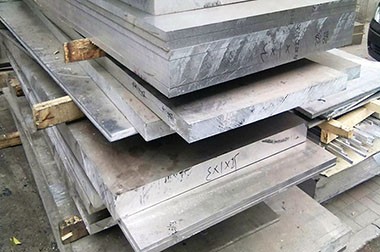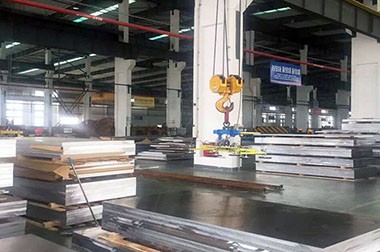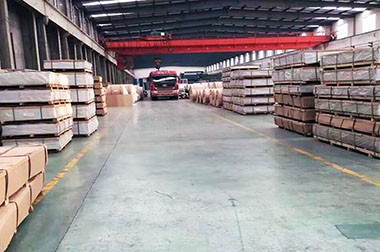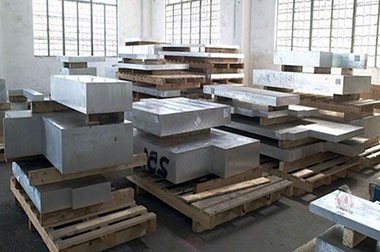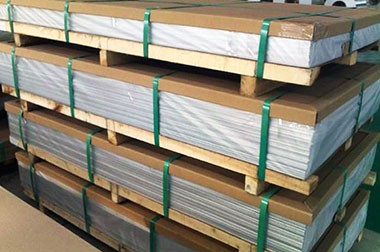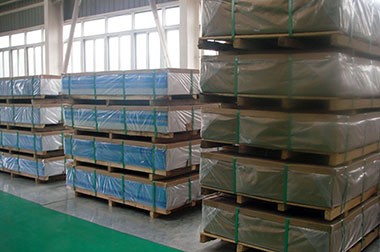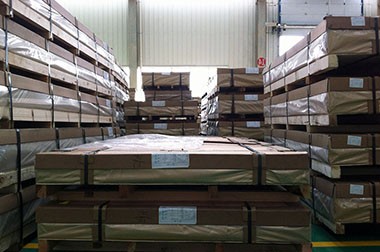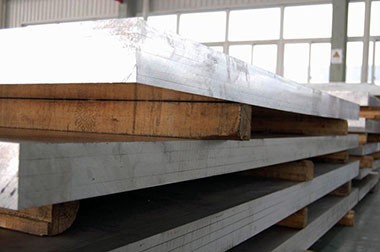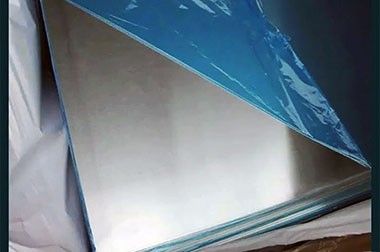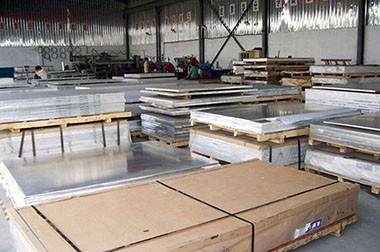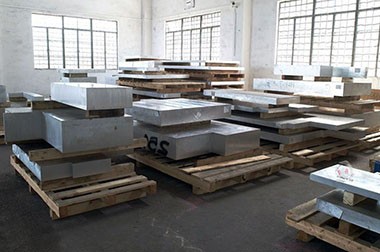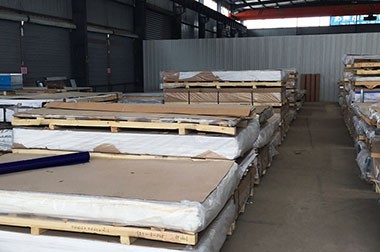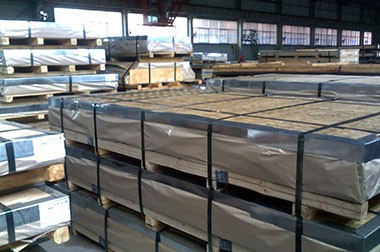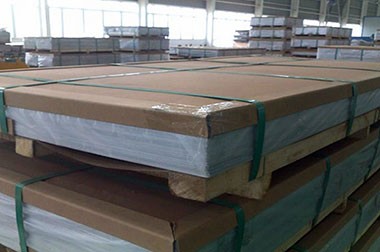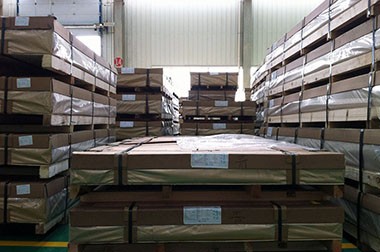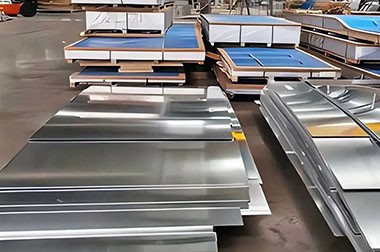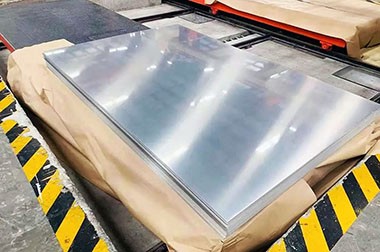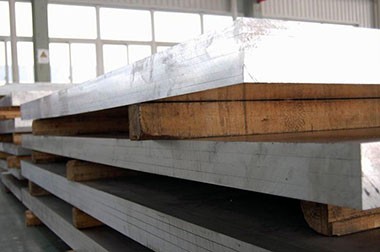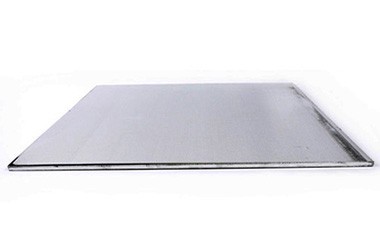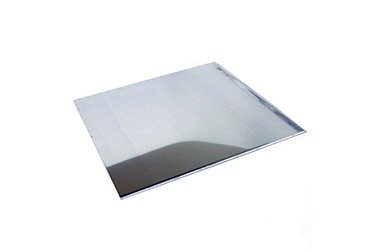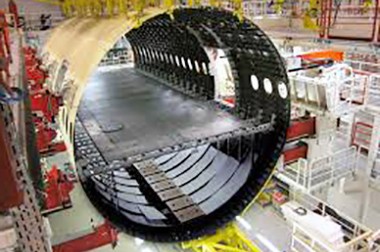7475 T7651 T7351 T651 Aircraft Aluminum Plate
7475 aluminum alloy is a high-strength, forged aluminum-zinc-magnesium-copper alloy, known for its outstanding mechanical properties, especially in aerospace applications.
- Series: 7xxx series (with zinc as the primary alloying element).
- Name: 7475 is a high-strength alloy, offering enhanced fracture toughness compared to 7075.
This composition gives the alloy high strength and fracture toughness, making it suitable for demanding structural applications.
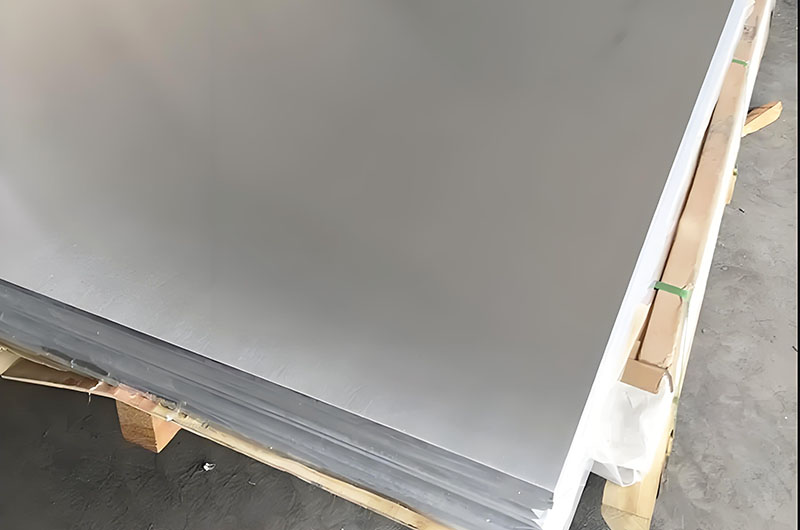
7475 aluminum plate is specially designed to offer about 40% higher toughness than 7075 under the same aging conditions. This improves fracture toughness and resistance to fatigue crack growth while maintaining excellent strength and relatively good corrosion resistance, making it the material of choice for critical aerospace applications.
7475 aluminum plate is the material of choice for high-stress applications where weight reduction and durability are critical. Its toughness is higher than that of 7075.
7475 aluminum plate is used in the aerospace and defense industries, achieving an optimal balance between strength, toughness, and machinability.
7475 Aluminum Plate is an Advanced Aerospace Material
- High strength and toughness: Provides excellent fracture toughness and resistance to fatigue crack growth.
- Fracture toughness: Superior to 7075, especially in stress-intensive environments.
- Corrosion resistance: Moderate; typically supplemented with coatings (e.g., anodizing, primers) or used in controlled environments.
- Custom chemical composition: Controlling zinc, magnesium, copper, and chromium content ensures reliable performance.
- Versatile tempers: Available in various tempers (T651, T7651, T7351) to meet specific application needs.
- Key aerospace applications: Widely used in aircraft components such as wing spars, fuselage walls, and skin due to its excellent strength-to-weight ratio.
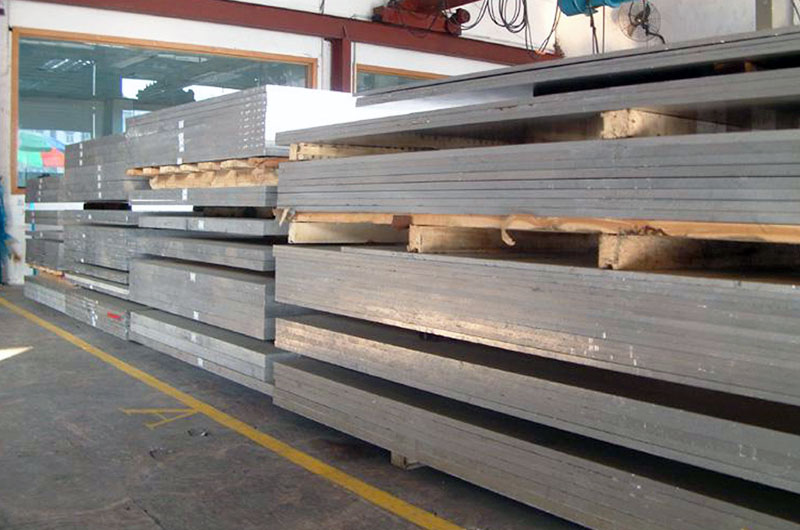
7475 Aluminum Plate Standards and Specifications
| Properties | Information |
| Alloy | 7475 |
| Temper | T7651 / T7351 / T651 |
| Thickness Range | 6.35 mm to 152.4 mm (plate form) |
| AMS Standards | AMS 4200 (clad), AMS 4201 (bare) |
| ASTM Standard | ASTM B209 (plate/foil standard) |
Haomei Aluminum offers a variety of aluminum aircraft plate products to meet the needs of various aerospace applications. Our products include a range of standards such as AMS 4041, AMS 4037, AMS 4035, AMS 4049, AMS 4050, AMS 4048, AMS 4045, AMS 4044, AMS 4027, AMS 4026, AMS 4025, AMS 4347, and AMS 4202. Additionally, we provide high-performance aluminum alloys such as 2219, 2124, 7175, 7475, 2024, 7075 T73, and 7075 T76 to meet the demands of aerospace and aviation industry customers.
We stock 7475 aluminum plates in O or T761 condition. We offer various thicknesses of bare plates or clad plates (the material includes a layer of pure aluminum to enhance corrosion resistance). AMS4100 is the most common specification requirement, and our stock range includes:
| Product | Image | Description |
| 7475 O Clad Aluminum Plate |
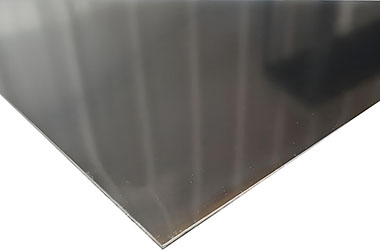
|
7475 O condition clad aluminum plate (AMS4100 specification) has lower hardness and higher ductility, making it suitable for aerospace applications that require higher corrosion resistance. The composite layer is made of pure aluminum, which effectively enhances the material's corrosion resistance, especially suitable for harsh environments. |
| 7475 T761 Bare AMS4085 |
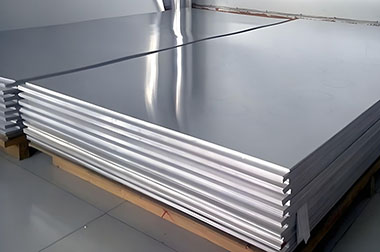
|
7475 T761 condition bare aluminum plate meets AMS4085 specification, offering higher strength and tensile performance, commonly used in aerospace fields. This product is heat-treated, providing excellent fatigue resistance and impact resistance. However, compared to T651 condition, its ductility is slightly lower, making it suitable for applications requiring higher structural strength. |
| 7475 T761 Clad AMS4100 |
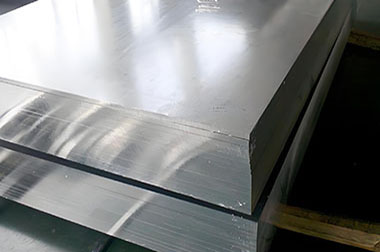
|
7475 T761 condition clad aluminum (AMS4100 specification) combines the strength of T761 and the excellent corrosion resistance of the clad layer, making it suitable for applications that require both high strength and good corrosion resistance, such as aerospace structural components and skins. |
| 7475 T761 Clad Aluminum Plate |
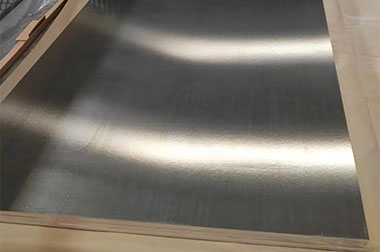
|
7475 T761 Clad Aluminum Plate offers excellent mechanical properties and corrosion resistance, commonly used for high-performance structural components in the aerospace industry. The pure aluminum composition of the composite layer enhances corrosion resistance, while the T761 condition ensures high strength. |
| 7475 T761 Clad Aluminum Sheet |
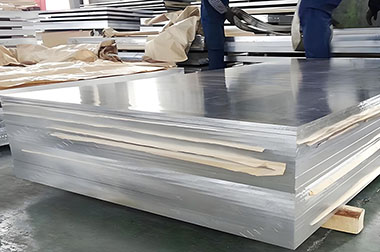
|
7475 T761 Clad Aluminum Sheet is a material for high-demand aerospace structural components, particularly suitable for parts that need to withstand high stress in harsh environments. The composite aluminum layer provides excellent corrosion resistance, while the T761 condition enhances the material's strength. |
| 7475-T61 Aluminum Sheet AMS 4084 |
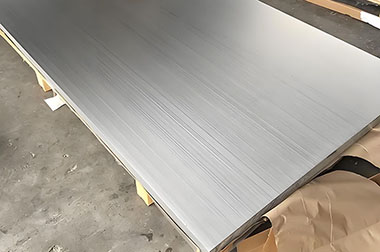
|
7475-T61 aluminum sheet (AMS4084 specification) offers high strength and good impact resistance, commonly used for structural components and high-load-bearing parts in the aerospace industry. Its hardening treatment ensures the material's durability and load-bearing capacity, suitable for applications with strict strength requirements. |
| 7475-T61 Aluminum Sheet Alclad AMS 4207 |
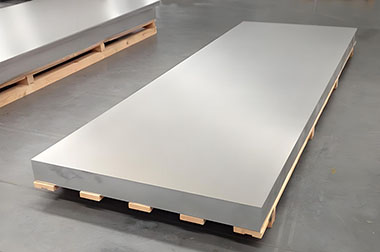
|
7475-T61 aluminum sheet (Alclad AMS 4207 specification) features a composite aluminum alloy layer design, offering excellent corrosion resistance and high strength, commonly used for external structural components in aerospace. The aluminum cladding effectively prevents corrosion, and the T61 condition enhances the strength of the plate, making it suitable for applications in harsh environments. |
| 7475-T651 Aluminum Plate AMS 4090 |
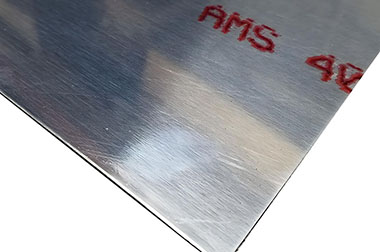
|
7475-T651 aluminum plate (AMS 4090 specification) is heat-treated, offering high strength, corrosion resistance, and good formability. It is commonly used for aerospace structural components that need to withstand large loads. The high strength of this material performs well under high-stress environments, and its corrosion resistance ensures long-term stability. |
| 7475 Hot Rolling Aluminum Plate |
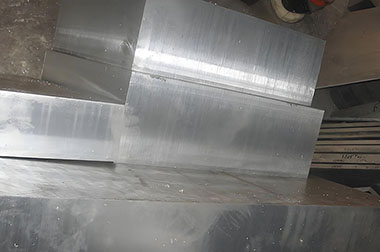
|
7475 hot-rolled aluminum plate provides excellent mechanical properties and higher strength, widely used for structural components that require higher load-bearing capacity and strength. The hot rolling process ensures the material's stability and uniform performance distribution under high-temperature conditions, making it suitable for aerospace and military industries with high strength requirements. |
| 7475 Cold Rolled Aluminum Plate |
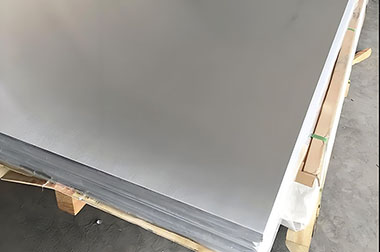
|
7475 cold-rolled aluminum plate is produced using a cold-rolling process, offering good surface quality and dimensional accuracy. The cold-rolled aluminum plate maintains high strength and toughness during processing, suitable for applications that require strict surface flatness and thickness tolerance. It is ideal for high-strength components requiring precision machining in the aerospace industry. |
7475 Aluminium Heat Treatment and Tempers
The 7475 alloy comes in several temper names (e.g., T651, T7651, and T7351) that adjust the balance between hardness and toughness:
- T651: Typically has high strength and controllable residual stress.
- T7651 and T7351: Offer improved fracture toughness, especially useful in applications requiring strength and resistance to stress corrosion.
- T6: Achieves peak strength through solution heat treatment and artificial aging.
- T73/T76: Enhance resistance to stress corrosion cracking, with a slight reduction in strength.
- Solution heat treatment: Usually performed at 480°C followed by quenching and aging.
7475 aluminum plate is primarily produced in rolled form, suitable for further processing, forming, and heat treatment operations to tailor its performance for specific structural applications.
7475 aluminum alloy is generally used for structural components that require high strength and low weight. 7475 T7651 and T7351 are two commonly used aluminum alloys, widely applied in high-strength demanding fields such as aerospace.
7475 t7651 and T7351 are two commonly used aluminum alloy materials, widely applied in aerospace and other high-strength requirement fields.
Below is a comparison table for 7475-T7651 and 7475-T7351 aerospace aluminum alloy plates:
| Characteristic | 7475-T7651 Aerospace Aluminium Plate Sheet | 7475-T7351 Aerospace Aluminium Plate Sheet |
| Alloy System | Al-Zn-Mg-Cu | Al-Zn-Mg-Cu |
| Main Features | High strength, good toughness, and crack resistance | High strength, good crack propagation resistance, and fatigue performance |
| Heat Treatment Condition | T7651 (Strengthened condition) | T7351 (Mild heat-treated condition) |
| Strength | Very high, suitable for high-load-bearing components | High, suitable for components under high stress and complex loads |
| Toughness and Crack Resistance | Good crack resistance and toughness | Better crack propagation resistance, suitable for long-term high-strength applications |
| Corrosion Resistance | Excellent | Excellent |
| Fatigue Performance | Good | Excellent, suitable for components requiring high fatigue resistance |
| Main Applications | Aircraft fuselage, wing frames, spars, and other structural components | Aircraft wing spars, fuselage frames, heavy-load structural components |
| Applicable Fields | Aerospace, especially for parts requiring high strength and crack resistance | Aerospace, suitable for high-strength and fatigue-resistant structural components |
7475 Aluminium Sheet Corrosion and Durability
- Stress Corrosion Cracking (SCC): Mitigated by T73/T76 tempering.
- Coatings: Anodized or aluminum cladding, providing additional protection in harsh environments.
Stress Corrosion Cracking (SCC) of 7475 Aluminium Sheet
7475 aluminum alloy sheets, when subjected to stress corrosion cracking (SCC), can effectively mitigate this issue through T73 and T76 tempering. These two heat treatment states optimize the alloy's lattice structure, thereby reducing the risk of crack propagation due to chloride corrosion in high-stress environments. The T73 and T76 temper provide higher corrosion resistance and crack resistance, making the alloy sheet ideal for aerospace applications, especially where high strength and corrosion resistance are critical.
Coating Protection of 7475 Aluminium Sheet
7475 aluminum alloy sheets can be treated with anodizing or aluminum cladding to gain additional protection in harsh environments. Anodizing forms a strong oxide film on the surface of the alloy, enhancing its corrosion resistance and wear resistance, making it particularly suitable for aerospace, military, and other applications requiring strong resistance to corrosive environments. The aluminum cladding provides extra protection, effectively preventing oxidation, corrosion, and other environmental damage to the surface, prolonging the material's service life and maintaining its structural integrity.
7475 Aluminium Sheet Features and Advantages
| Features/Advantages | Description |
| Excellent Fracture Toughness | 7475 aluminum alloy sheet exhibits excellent fracture toughness, allowing it to effectively prevent brittle fracture under high-stress conditions. Even under extreme loading or impact conditions, 7475 aluminum sheet maintains high ductility and crack resistance. This characteristic makes it particularly suitable for aerospace applications, especially for critical structural components that must withstand impact and fatigue. |
| Superior Strength | 7475 aluminum alloy sheet is known for its superior strength, offering excellent tensile and yield strength, especially among high-strength aluminum alloys. Due to its high strength, 7475 aluminum sheet is commonly used in aerospace, military, and other high-strength applications as a structural material that can withstand heavy loads and stress concentrations. |
| Good Fatigue Crack Resistance | 7475 aluminum alloy sheet exhibits excellent fatigue crack resistance, effectively resisting crack formation under long-term cyclic loads and repeated stress. This characteristic makes it an ideal choice for high-load applications, particularly for components that operate under cyclic stress for extended periods, such as those in aerospace. |
| Fatigue Crack Growth Resistance | 7475 aluminum alloy sheet demonstrates significant resistance to fatigue crack growth, effectively suppressing the expansion of cracks from small defects to structural failure. This makes the material maintain its structural integrity under long-term use and high-cycle loading, especially for aerospace applications requiring high strength and safety. |
| Low-Temperature Service Performance | 7475 aluminum alloy sheet performs well in low-temperature environments, maintaining its strength and toughness under cold conditions. Due to its good low-temperature adaptability, 7475 aluminum sheet is widely used in equipment and structural components in extreme climates, particularly in aerospace and military applications where material performance at low temperatures is critically important. |
| Corrosion Resistance | 7475 aluminum alloy sheet exhibits outstanding corrosion resistance, especially in harsh environments such as high humidity and salt fog, effectively resisting oxidation and corrosion. This makes it highly durable and suitable for long-term service in marine environments, aerospace external components, and other applications exposed to corrosive environments. |
7475 Aluminum vs. Other Alloys
Compared to 7075: 7475 offers better fracture toughness and stricter impurity control, improving reliability in critical applications.
Compared to 2024: Has higher strength but lower corrosion resistance; typically used in weight-critical designs.
| Comparison | 7475 Aluminum vs. 7075 Aluminum | 7475 Aluminum vs. 2024 Aluminum |
| Strength | The strength of 7475 aluminum is similar to that of 7075, both being high-strength alloys. | 7475 aluminum has higher strength than 2024, giving it an advantage in high-load applications. |
| Fracture Toughness | 7475 aluminum has superior fracture toughness, mainly due to its more stringent metallurgical control and optimized alloy composition, which enhances its reliability in high-stress and high-fatigue life applications. | 7475 aluminum has relatively high fracture toughness, while 2024 aluminum has moderate toughness, which may not be as suitable for structural components with high fatigue life requirements. |
| Impurity Control | 7475 aluminum has stricter impurity control, which reduces the impact of impurities on material performance, improving stability and reliability. | 7475 aluminum also has strict impurity control, while 2024 aluminum has relatively looser metallurgical control, which may lead to more performance variation in extreme environments. |
| Corrosion Resistance | 7475 aluminum has similar corrosion resistance to 7075, both requiring additional corrosion protection measures such as surface treatments or coatings. | 7475 aluminum has worse corrosion resistance than 2024 aluminum and is more susceptible to corrosion in exposed environments, requiring additional protective treatment, while 2024 aluminum has better natural corrosion resistance in ambient conditions. |
| Application Areas | 7475 aluminum is more suitable for aerospace structures requiring high fracture toughness, such as fuselage frames, wing components, and other components subjected to high fatigue loads. | 7475 aluminum is primarily used in weight-critical designs such as aerospace structures, while 2024 aluminum is commonly used in aerospace and military applications where corrosion resistance is more important, such as skin and load-bearing frames. |
7475 aluminium sheet is frequently used in aircraft fuselage skins. As a 7000 series alloy, it shares many of the same characteristics as 7075 but has notably higher fracture toughness.
7475 alloy aluminium sheet is a controlled toughness alloy, offering 40% higher toughness than 7075 alloy under the same tempering conditions. Its corrosion resistance and fatigue behavior are also equal to or better than many other high-strength aerospace alloys, making it ideal for applications requiring high strength, excellent fracture toughness, and resistance to fatigue crack propagation.
7475 t7651 T7351 Aircraft Aluminum Plate Chemical Composition
| Alloy | Si | Fe | Cu | Mn | Mg | Cr | Zn | Zr | Ti | Standard |
| 7475 | 0.10 | 0.12 | 1.2-1.9 | 0.06 | 1.9-2.6 | 0.18-0.25 | 5.2-6.2 | 0.06 | 0.05 | GB/EN/AMS |
7475 t7651 T7351 Aircraft Aluminum Plate Mechanical Properties
| Alloy | Temper | Thickness(mm) |
Tensile strength(mm) RM(Mpa) |
Yield strength RP0.2(Mpa) |
Breaking elongation A50% |
Standard |
| 7475 | O | 0.5-4.0 | 185-205 | 90-110 | 18-22 | GB/EN/AMS |
Haomei hot selling 7475 aerospace aluminum plate products
7475 aluminum alloy is available in various heat treatment states, each imparting different performance characteristics to the alloy, thus meeting different application requirements.
7475 T651 Aircraft Aluminum Plate
Heat Treatment State (T651): The 7475 aluminum alloy plate in T651 condition undergoes solution treatment followed by stress relieving, retaining excellent strength and toughness. This state of the alloy is suitable for aerospace applications requiring high strength and toughness.
Characteristics:
- High Strength: The 7475 aluminum alloy in T651 condition provides extremely high mechanical strength, suitable for parts subjected to high loads.
- Toughness and Crack Propagation Resistance: After appropriate heat treatment, the T651 condition retains good toughness, effectively resisting crack propagation, thus increasing the durability of parts.
- Good Machinability: Due to the stress relief, T651 aluminum alloy does not undergo deformation during machining, helping to ensure the precision of complex parts.
Applications:
Used in high-stress structural components such as aircraft fuselage, wing skins, and wing parts.
Suitable for parts requiring high strength and fatigue resistance, such as airframe frames and spars.
7475 T7351 Aircraft Aluminum Plate
Heat Treatment State (T7351): The 7475 aluminum alloy in T7351 condition offers high strength and good toughness, having undergone a special aging treatment. This state is suitable for applications with medium to high strength requirements, especially for components needing high fatigue resistance and toughness.
Characteristics:
- High Fatigue Resistance: The T7351 condition has excellent fatigue resistance, making it suitable for structures subjected to repeated loads over extended periods.
- Fracture Toughness: Compared to T651, T7351 offers enhanced crack propagation resistance and fracture toughness, making it ideal for aerospace components requiring high toughness.
- Corrosion Resistance: The T7351 condition performs well in corrosion resistance, especially for components exposed to the harsh environments of aircraft.
Applications:
Used in medium-to-high strength structural components for aircraft, such as wing frames, spars, and cockpit structures.
Particularly suitable for load-bearing parts in aircraft and components that require high fatigue performance.
7475 T7651 Aircraft Aluminum Plate
Heat Treatment State (T7651): The 7475 aluminum alloy in T7651 condition undergoes a special heat treatment process, mainly through aging and temperature control, to optimize the alloy’s strength and toughness. This condition offers very high strength and excellent crack propagation resistance.
Characteristics:
- Extremely High Strength: The 7475 aluminum alloy in T7651 condition is used in applications requiring ultra-high strength, suitable for parts subjected to extreme load conditions.
- Fatigue and Crack Propagation Resistance: Compared to other alloy states, T7651 provides superior fatigue resistance and crack propagation resistance, making it ideal for aerospace parts that require long-term reliability under high stress.
- Good Corrosion Resistance: The T7651 condition retains good corrosion resistance, making it suitable for use in complex environments.
Applications:
Used in high-strength aerospace structural components such as aircraft wing beams, fuselage frames, and wing skins, which require extremely high strength.
Suitable for key flight structures requiring superior crack propagation resistance, strength, and toughness.
The following table introduces the main characteristics and application ranges of 7475 aluminum alloy in T651, T7351, and T7651 conditions.
| Temper | Characteristics | Application Range |
| 7475 T651 | Provides high strength and good machinability | Suitable for high-stress parts |
| 7475 T7351 | Provides better fatigue performance and crack propagation resistance | Suitable for components subjected to repeated loads |
| 7475 T7651 | Provides extremely high strength and excellent fatigue resistance | Suitable for high-strength aerospace components under extreme load conditions |
Common Trade Names
UNS A97475, ISO AlZn5.5MgCu(A), AA7475-T7351, Al7475-T7351
7475 Aluminium Plate Applications
Due to its high strength and toughness, 7475 aluminium alloy is typically used in:
Aerospace Industry: Fuselage skins, cabin walls, wing components, and other parts.
Military Applications: Shell casings and other high-stress parts.
High-Performance Sports: Bicycle frames, climbing equipment.
- Fuselage: 7475 aluminium alloy sheet is used in the manufacturing of aircraft fuselage components, providing high strength and toughness.
- Wing Components: In the major structural components of aircraft wings, 7475 aluminium alloy sheet is used for wing spars and panels, bearing aerodynamic loads and lift during flight.
- Wing Spars: In the wing spar sections of aircraft wings, 7475 aluminium alloy sheet is a critical part that bears flight loads, requiring high strength, toughness, and corrosion resistance.
- Fuselage Cabin Walls: 7475 aluminium alloy sheet is applied in the cabin wall structure of the fuselage, providing structural support and ensuring the integrity of the internal environment, especially in areas exposed to internal and external pressure differences and impacts.
- High-Stress Parts: 7475 aluminium alloy sheet is widely used in high-stress components of aircraft, such as connectors and brackets that bear extreme loads, offering ideal solutions.
- Military Components: Due to its high strength and corrosion resistance, 7475 aluminium alloy sheet is widely used in military aircraft parts, especially under conditions requiring high durability, fatigue resistance, and low-temperature adaptability.
- Aircraft Structural Components: 7475 aluminium alloy sheet is used in various structural parts of aircraft, such as fuselage frames, wing structures, and cabin walls, offering excellent overall performance to withstand various complex conditions during flight.
- Fracture-Critical Components: 7475 aluminium alloy sheet can be used in critical fracture-critical components of aircraft, such as parts exposed to maximum stress and potential defects. Its excellent fracture toughness and fatigue performance make it ideal for such high-demand applications.
Its resistance to fatigue crack propagation and excellent fracture toughness make it an ideal choice for these critical applications.
Hot selling 7475 aluminum plate size list
7475 Aluminium Plate Sheet Processing and Machinability
- Machinability: Best in the annealed state, with oil-based lubricants providing the best results.
- Forming: Easier in the annealed state; springback may occur in hardened forms.
- Welding: Due to susceptibility to stress corrosion cracking, welding is generally not recommended; alternative joining methods such as rivets or bolts are preferred.
These processing characteristics are crucial for achieving the desired mechanical properties and ensuring the alloy's performance in the intended applications.
Manufacturing Considerations
- Machining: Due to high strength, sturdy tools are required; carbide tools are recommended.
- Welding: Challenging; prioritize friction stir welding or specialized techniques.
- Forming: Annealed state (O temper) for ease of use, followed by heat treatment.
7475 aluminium alloy combines high strength, excellent toughness, and resistance to fatigue crack propagation, making it the material of choice for critical aerospace and military applications.
You may also be interested in the following
-
7050 7475 Aerospace Aluminum for Wing Attach Structure
Alloys 7050 and 7475 are used in the construction of wing attach structures, ensuring safety and durability during flight.
-
7050 7475 7099 Aircraft Aluminum for Wing Ribs
7050, 7475, and 7099 high-strength aluminum alloys are used to manufacture wing ribs, providing structural support to the wings and enhancing structural integrity.
-
7050 7475 7099 Aerospace Aluminum for Wing Spars
7050, 7475, and 7099 have outstanding strength-to-weight ratios and fatigue resistance, making these high-strength aluminum alloys ideal materials for manufacturing wing spars.
-
2024, 7075, and 7475 Aerospace Aluminum for Wing Skins
2024, 7075, and 7475 combinations exhibit excellent strength and fatigue resistance, making them suitable for wing skins to withstand deformation under stress.

